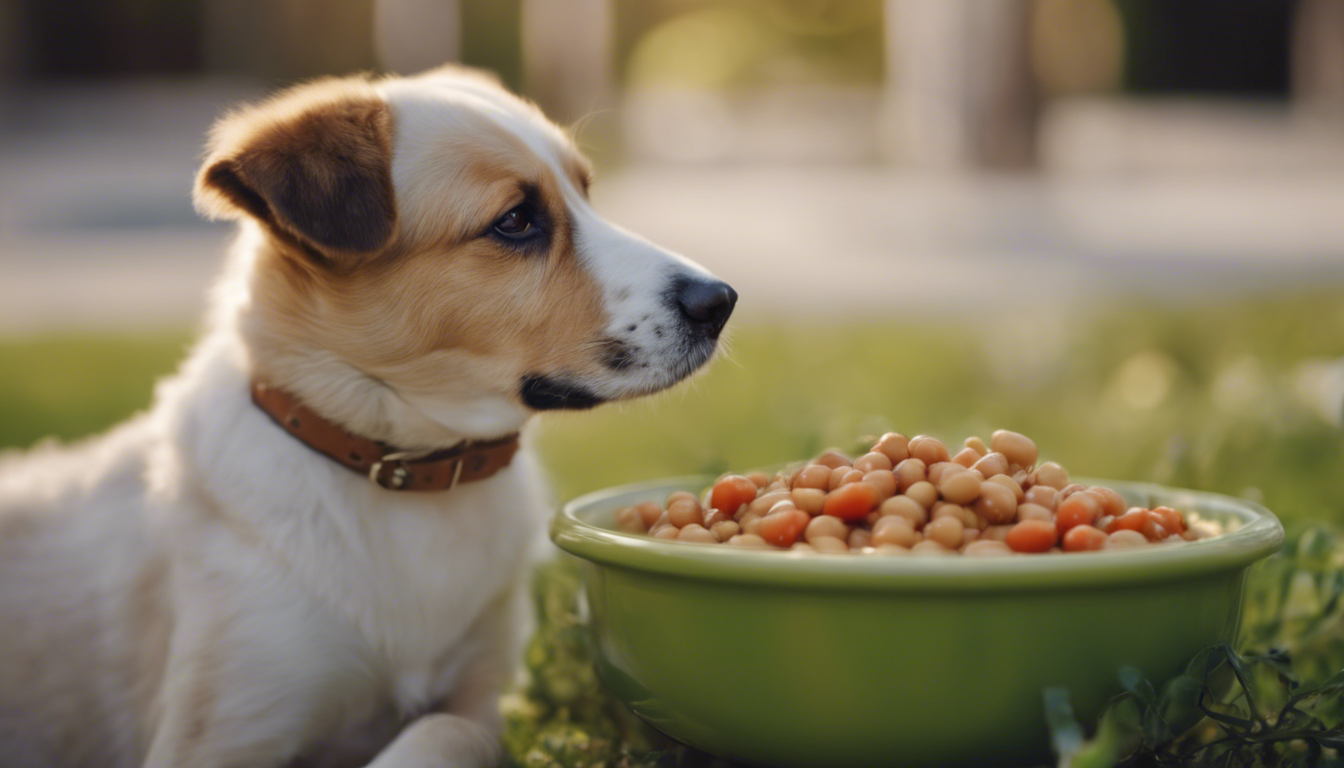Can Dogs be Vegetarians? Exploring Plant-Based Diets

As more people adopt vegetarian or vegan lifestyles, questions arise about whether it is possible for our canine companions to follow the same dietary path. Can dogs be vegetarians? This article aims to explore plant-based diets for dogs, focusing on essential aspects of canine nutrition and diet to promote their well-being and health.
Canine Nutrition Basics
Before diving into the topic of vegetarian diets for dogs, it’s important to understand the basics of canine nutrition. Dogs are omnivores, which means they can derive their nutritional requirements from both animal and plant sources. Their diet should consist of protein, fats, carbohydrates, vitamins, and minerals.
Essential Nutrients
Protein is one of the most critical nutrients in a dog’s diet. It’s essential for muscle development, immune function, and overall energy. High-quality protein sources such as meat, eggs, and fish provide all the essential amino acids dogs need.
Fats play a role in nutrient absorption, energy supply, and maintaining healthy skin and coat. Omega-3 and omega-6 fatty acids are important for a dog’s overall health.
Carbohydrates provide energy and fiber to support digestion. Common carbohydrate sources in commercial dog food include grains and vegetables.
Vitamins and minerals are necessary for proper immune function, bone health, and overall well-being. They can be obtained from a balanced diet that includes fruits, vegetables, and either animal or plant-based protein sources.
Balanced Diet Essentials
A balanced diet is important for dogs to thrive. Whether a dog follows a vegetarian diet or not, certain essentials should be met:
- Protein: Dogs need high-quality protein sources that provide all the essential amino acids they require. If following a vegetarian diet, plant-based protein sources such as soy, legumes, and quinoa can be considered.
- Fats: Adequate levels of fats are important for overall health. Plant-based fats such as flaxseed oil and coconut oil can be included in a vegetarian dog’s diet.
- Carbohydrates: Whole grains, vegetables, and fruits can provide the necessary carbohydrates and fiber for dogs. However, it is important to avoid refined grains or excessive amounts of carbohydrates that may lead to weight gain.
- Vitamins and Minerals: A variety of fruits and vegetables should be included in a vegetarian dog’s diet to ensure they receive proper amounts of vitamins and minerals.
Dietary Needs for Different Life Stages and Breeds
It is important to consider a dog’s life stage and breed when determining their nutritional needs.
Puppies: Growing puppies require higher levels of protein, fats, and calories compared to adult dogs. It may be more challenging to meet these needs solely through a vegetarian diet, so consulting with a veterinarian or veterinary nutritionist is essential.
Adult Dogs: Adult dogs have different activity levels, metabolism, and dietary requirements. It’s important to adjust their food intake accordingly. Again, a veterinarian can provide guidance on meeting these needs through a vegetarian diet.
Senior Dogs: Older dogs may have specific health conditions that require modifications to their diet. Regular check-ups with a veterinarian are recommended to ensure their nutritional needs are being met.
Breed Considerations: Some breeds have specific dietary requirements or sensitivities to certain ingredients. For example, large breed dogs may benefit from diets with controlled levels of calcium and phosphorus for proper bone health. The nutritional needs of specific breeds should be taken into account when planning a vegetarian diet.
Homemade Diet Options
If you choose to feed your dog a vegetarian diet, there are homemade options available. However, it’s important to note that these diets require careful planning and monitoring to ensure proper nutrition.
A vegetarian homemade diet should include a variety of protein sources such as tofu, tempeh, legumes, and dairy products (if tolerated by the dog). Combining different protein sources can help provide a complete amino acid profile.
Supplementation is also important when feeding a vegetarian diet to dogs. Essential nutrients like vitamin B12, iron, and zinc may be lacking in plant-based diets and should be supplemented to avoid deficiencies.
It is recommended to consult with a veterinarian or veterinary nutritionist who can guide you in formulating a balanced homemade vegetarian diet for your dog. Regular monitoring and blood tests may be necessary to ensure your dog’s nutritional needs are being met.
Disclaimer: This article is for informational purposes only and should not replace professional veterinary advice. Every dog is unique, and their dietary needs may vary. Consult with a veterinarian before making any significant changes to your dog’s diet.
In conclusion, while it’s possible for dogs to follow a vegetarian diet, it requires careful planning, consideration of nutritional requirements at different life stages and breeds, and potentially homemade options. A balanced diet that meets a dog’s essential needs for protein, fat, carbohydrates, vitamins, and minerals is important for their overall health and well-being. By taking appropriate measures and consulting with professionals, you can ensure that your vegetarian dog receives the necessary nutrients for a healthy and happy life.







